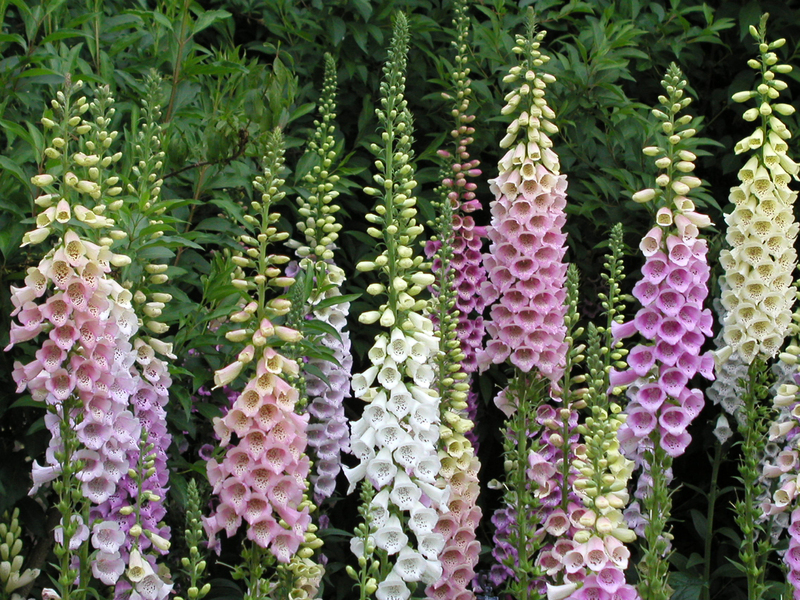Explore the Joys of Planting Your Own Herb Garden
Posted on 25/05/2025
Explore the Joys of Planting Your Own Herb Garden
Have you ever dreamed of stepping into your backyard or glancing at your kitchen windowsill and harvesting fresh, aromatic herbs for your favorite dishes or homemade teas? Planting your own herb garden is not only a satisfying hobby but also a valuable addition to your culinary, aesthetic, and even mental well-being. In this comprehensive guide, we will explore the joys of starting your own herb garden, provide practical tips, and demonstrate why growing herbs at home is much more than just a trend--it's a lifestyle!

Why You Should Start Your Own Herb Garden
Herb gardening has enjoyed resurgent popularity in recent years. This movement is rooted in the quest for fresher, healthier, and more flavorful food. But the benefits of planting an herb garden extend much further. Whether you reside in a rural home with sprawling outdoor space or an urban apartment with just a sunny windowsill, growing your own herbs brings numerous advantages:
- Freshness: Harvest herbs as you need them for unbeatable flavor in your dishes.
- Health: Homegrown herbs are packed with antioxidants and vitamins, free of pesticides and preservatives.
- Savings: Reduce grocery bills by having a steady supply of frequently used green spices.
- Aesthetics: Herb plants add lush green beauty and fragrance to any space.
- Sustainability: Lower your carbon footprint by growing food at home.
- Mental Health: Gardening relieves stress and boosts happiness.
Herb Garden Basics: What to Know Before You Start
Before you get your hands dirty, it's important to understand the fundamentals of starting an herb garden. Here are key factors to consider:
- Location: Most herbs need 6-8 hours of sunlight per day. Choose a sunny spot on your balcony, backyard, or kitchen window ledge.
- Soil: Good drainage is essential. Mix compost into garden beds or use high-quality potting mix for containers.
- Availability: You can grow herbs indoors or outdoors depending on your space and climate.
- Water Needs: Herbs prefer soil that is moist but not soggy. Overwatered herbs are prone to root rot.
- Climate: Some herbs are hardier than others; choose varieties suited for your local weather.
Top Herbs for Beginner Gardeners
When you're new to herb gardening, choose easy-to-grow herbs that require minimal care and provide maximum yield. Here are the most beginner-friendly herbs to consider for your home herb garden:
- Basil: Popular in Italian cuisine, basil is perfect for pesto, salads, and pastas. It grows quickly and thrives in warm conditions.
- Mint: Mint grows vigorously and is superb for teas, cocktails, or desserts. (Tip: Plant mint in containers to prevent it from taking over your garden!)
- Parsley: With its lush green leaves, parsley adds fresh flavor and a nutritional boost to countless dishes.
- Rosemary: This woody herb has aromatic foliage and is excellent for roasting meats or potatoes.
- Thyme: With its delicate leaves, thyme is a staple in Mediterranean cooking. It adapts well to both ground and pots.
- Chives: Their mild onion flavor is delightful in eggs, salads, and soups.
- Cilantro: Essential for salsas and Asian cuisine, cilantro is fast-growing and can be successively sown.
- Dill: Perfect for pickling, fish dishes, and fresh salads.
Planning Your Herb Garden Layout
A successful herb garden starts with good planning. Here are key tips to prepare the best herb patch, whether you're planting outdoors or indoors:
- Choose Your Location: Herbs need at least 6 hours of sunlight. An east or south-facing window works best for indoor herb gardens.
- Start Small: Especially if you're new to gardening, begin with 3-5 types of your favorite herbs and expand as you gain confidence.
- Group by Water and Sun Needs: Place similar herbs together so they receive optimal care (e.g., Mediterranean herbs like rosemary and thyme need less water than basil and mint).
- Height Matters: Place taller herbs (like dill and rosemary) at the back or in the center, with lower-growing types (like thyme or chives) at the front or edges.
- Label Your Plants: Keep track of which herbs are which, especially in the early stages, with simple plant markers.
How to Plant an Herb Garden: Step-By-Step
Planting herbs can be as simple as sowing seeds in a pot or as elaborate as designing a dedicated garden bed. Here's a step-by-step guide to help you start your own herb garden:
- Gather Supplies: Buy seeds or starter plants, soil, pots/containers, gloves, and a trowel.
- Prepare the Soil: Ensure the soil is loose, rich in organic matter, and well-draining.
- Plant Your Herbs: If using seeds, sow at the depth recommended on the packet (usually 1/4 inch). For seedlings, dig a hole twice as wide as the root ball and gently plant.
- Water Wisely: Moisten the soil after planting. Continue to water when the top inch feels dry.
- Feed Occasionally: Herbs don't need excessive fertilizer--compost or a balanced organic fertilizer once a month is often enough.
- Prune and Harvest: Pinch off stems just above a leaf pair. Regular harvesting encourages fresh, bushy growth.
Caring for Your Home Herb Garden
Consistent, attentive care is essential to enjoying a thriving herb garden. Here's how to keep your garden flourishing:
Watering and Feeding
- Watering: Overwated herbs can suffer from root rot. Touch the soil--if it feels dry an inch below, it's time to water. Use pots with drainage holes, and avoid letting containers sit in water.
- Fertilization: Most herbs require little feeding. Use a diluted organic fertilizer once a month; too much can reduce flavor intensity.
- Mulching: For outdoor gardens, mulch helps retain soil moisture and suppresses weeds.
Pruning and Harvesting
- Harvest early and often! Continual cutting encourages bushy growth and prevents flowering, which can cause bitterness.
- Never remove more than one-third of the plant at a time.
- Deadheading: Remove flower buds from herbs like basil, oregano, and mint to prolong leaf production.
Pest and Disease Management
- *Natural Defenses:* Most herbs are naturally resistant to pests due to their aromatic oils.
- Watch for common problems like aphids or powdery mildew. Use insecticidal soap or neem oil as needed.
- Avoid overhead watering to reduce fungal infections.
The Emotional and Sensory Benefits of an Herb Garden
Herb gardening offers more than just taste--it engages all your senses and nourishes your spirit. Here's why the simple act of tending to herbs is universally rewarding:
- Fragrance: The aroma of lavender, rosemary, and thyme can boost your mood and refresh any room.
- Visual Joy: Lush greens dotted with purple, yellow, and white flowers add vibrancy.
- Touch: The feel of soft basil leaves or fuzzy sage offers tactile pleasure.
- Mindfulness: Gardening focuses your attention, calms the mind, and reduces anxiety.
Creative Ways to Use Your Homegrown Herbs
Your herb garden at home isn't just about cooking! Discover new ways to enjoy your bounty:
- Kitchen: Flavor soups, stews, salads, grilled meats, and drinks with unrivaled taste.
- Teas and Infusions: Brew soothing herbal teas from chamomile, mint, lemon balm, or sage.
- Home Decor: Add sprigs to flower arrangements or use as natural air fresheners.
- DIY Beauty: Infuse oils or create skin-soothing balms with lavender and calendula.
- Gifts: Homemade herb butters, vinegars, or dried bouquets are thoughtful, personal presents.
Herb Garden Troubleshooting & Tips
Every gardener faces challenges. Here's how to overcome the most common issues when cultivating an herb garden:
- Yellowing Leaves: Usually a sign of overwatering. Let soil dry out and reduce watering frequency.
- Spindly Growth: Herbs not getting enough sunlight become leggy. Move them to a brighter location.
- Pest Prevention: Occasionally rinse leaves with water, and keep plants spaced for air flow.
- Herbs Bolting (Going to Seed): Hot weather or lack of harvesting can trigger flowering. Pinch off flower heads promptly.

Year-Round Herb Gardening: Indoors and Out
Want year-round access to fresh herbs? That's one of the greatest joys of an indoor herb garden! Here's how to extend your growing season:
Indoor Herb Gardens
- Use pots with drainage on a sunny kitchen windowsill; supplement with grow lights if natural light is limited.
- Choose compact types, like dwarf basil or curly parsley, ideal for small spaces.
- Water carefully and avoid drafts from open windows or heat vents.
Outdoor Herb Gardens
- Perennial herbs like thyme, chives, oregano, and mint can survive mild winters and return each year.
- Protect tender herbs (such as basil) with cloches or by moving pots inside during frost.
- Dry or freeze summer's excess for use during the colder months.
Conclusion: Experience the Joys of Planting Your Own Herb Garden
Creating a home herb garden is a truly rewarding hobby that nourishes not just your table, but your well-being. You don't need to be a gardening expert or have a large backyard to savor the happiness of harvesting your own fresh herbs; a few pots by a sunny window or a small raised bed is all it takes to start experiencing the many joys of planting your own herb garden.
Rediscover the simple pleasures of working with your hands, nurturing living plants, and infusing your meals with the vibrant flavors of freshly picked herbs. Join the millions worldwide who are embracing home herb gardening for its practical, aesthetic, and emotional rewards. Your journey to a greener, healthier, and more delicious life begins with a single seed!
So don't wait--gather your supplies, plant your first basil or mint, and let the journey of herb gardening enrich every day.
Latest Posts
Innovative Weed Control Practices: 3 Tips to Try
Expert Tips to Keep Your Garden Safe from Severe Weather Hazards
Aesthetic Hedge Trimming: Techniques for Eye-Catching Geometry

